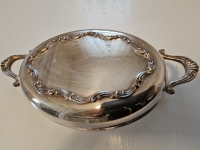'Black Lives Matter' and jury duty
If you think you can't get past your prejudices and make a decision based on the testimony, you should bring this to the attention of the judge.
Answer all questions truthfully and do not volunteer information not asked. That said, often jurors are asked if there is anything about the case that would affect your ability to be fair. If asked, it seems to me you have to say yes. If more people say this again and again, prosecutors are going to have to do something about it. So far, most seem to just protect cops, that has to change. Talking openly about your concerns is the right thing to do. Keeping it to yourself and then just letting it affect your vote as a juror could result in an acquittal of a guilty defendant. The system works best when each side gets a fair trial. Besides don't assume you are the only one not trusting cops.
Are you willing to be swayed by corroborating evidence? If so I do not see that you need to make a point of bringing something up (if asked of course answer honestly).
I was very recently on a case where the only evidence was essentially the officers testimony. The not guilty verdict was brought in immediately. The officer was just not credible absent any other testimony.
Actually I WAS asked how I view a police officers credibility relative to others. And I did say that that there are different types of people in every group so regardless you need to look at the individual. I was surprised I was not booted by the prosecution but I was not.
Not that it really matters but the jury I was on was more than half white and did not find the officer at all credible.
Here are the actual questions in state court, look at 26,
https://www.judiciary.state.nj.us/jury/std_jury_quest_criminal.pdf
Sybil said:
Are you willing to be swayed by corroborating evidence? If so I do not see that you need to make a point of bringing something up (if asked of course answer honestly).
I was very recently on a case where the only evidence was essentially the officers testimony. The not guilty verdict was brought in immediately. The officer was just not credible absent any other testimony.
Actually I WAS asked how I view a police officers credibility relative to others. And I did say that that there are different types of people in every group so regardless you need to look at the individual. I was surprised I was not booted by the prosecution but I was not.
Not that it really matters but the jury I was on was more than half white and did not find the officer at all credible.
Yes, this is the sort of situation I'm envisioning: no corroborating evidence, decision comes down to whether the jury believes police testimony. I have also been on juries where this was the situation. I now believe that there is always a reasonable question as to whether a cop is telling the truth. In that situation, I don't see how I could possibly now convict somebody.
I always disclose these concerns during jury selection, even before #BLACK LIVES MATTER, and am consistently sent home.
Your opinions are not solicited for Grand Jury selection. You only have to meet the criteria and be physically able to serve. The Grand Jury does not decide verdicts, it simply decides whether or not there is enough evidence to bring a case to trial. Much lower bar for proof; your gut feeling is allowed and valued.
There is no need to bring up that you can doubt a police officers testimony. All testimony can be doubted. Its your job as juror to figure out what's what.
A real bias is to automatically believe police testimony. Police lying happens happens often enough that the word "testilying" was coined.
The first time when Bratton was commisioner he gave a speech at Harvard Law School about NYPD's persistent "testilying."
http://nypdconfidential.com/columns/2009/090223.html
http://nypdconfidential.com/print/1995p/951127p.html
One of the first things I learned when I served on my first petit jury was that there is a potential for everyone testifying at trial to lie. A conscientious juror needs to evaluate what everyone is saying, not just officers of the law, to determine if they are being truthful or seem to be remembering incidents they are relaying correctly. The fact that you unwilling to take what anyone says at face value without corroboration would make you a better juror, not a worse one.
joan_crystal said:
One of the first things I learned when I served on my first petit jury was that there is a potential for everyone testifying at trial to lie. A conscientious juror needs to evaluate what everyone is saying, not just officers of the law, to determine if they are being truthful or seem to be remembering incidents they are relaying correctly. The fact that you unwilling to take what anyone says at face value without corroboration would make you a better juror, not a worse one.
This is 100% on point. It is your job to figure out matters of fact. If jurors were supposed to believe cops and prosecutors uncritically why the hell bother with a jury of peers? Go straight to the execution.
Prosecutors and cops are human, with all the attendant flaws. They may not even be lying or mendacious- they could just be stupid or lazy or careless or any other number of shortcomings we are all afflicted with from time to time.
The power of government to strip an individual of their freedom is an awesome one. You are the check on that power running unregulated and wild.
Now, if the attitude were "I hate cops so everyone's going free" that is a different story, and I have a feeling anyone thinking that way wouldn't be asking moral questions related to jury service
My concern is not whether I belong on a jury. I think I've been a good juror in the past and would continue to be one. The issue is how upfront I should be about my views on this stuff given that the full truth is likely to get me excluded. Do I have more of a moral obligation to disclose how I feel, or more of a moral obligation to get onto a jury where I can actually have an impact? I would never lie in court, but there are degrees of self-revelation.
I was booted out of jury duty based on question # 25, "Would you have any difficulty accepting the law ... as it is written?" I believe in jury nullification and if I believe a law is "bullroar," I will vote to acquit, as in, "If the glove don't fit...."
I explained that to the Essex County judge in 1988 and have not been called back since.
Regarding the honesty of cops.... Enough of them have been caught lying. that I would be inclined to give less credence to their testimony. But since I will never sit on a jury again, it doesn't matter.
My point is that there is nothing in what you are stating on this thread which should disqualify you from serving on a jury and I would expect that most judges hearing your explanation should you offer it would agree with me on this.
imonlysleeping said:
My concern is not whether I belong on a jury. I think I've been a good juror in the past and would continue to be one. The issue is how upfront I should be about my views on this stuff given that the full truth is likely to get me excluded. Do I have more of a moral obligation to disclose how I feel, or more of a moral obligation to get onto a jury where I can actually have an impact? I would never lie in court, but there are degrees of self-revelation.
Unless asked don't volunteer it. Your comments here are completely in line with the letter and the spirit of jury service.
Criminal proceedings are supposed to be about getting to the truth. As noted by another poster, too often it's only about winning. By volunteering that you're not in the bag for the prosecutor do you get bounced? Maybe.
To answer one of your original questions, regarding recent events coloring views.... My default position is to be skeptical of government functionaries and has always been thus. They have neither halo nor horns in most cases.
Were I an innocent man charged with a crime, you are exactly the person I'd want in that box. Were I guilty, I'd try for someone else.
A sidebar(!!!!)- jury nullification is the tyranny of one. There are methods to petition for redress against laws viewed as unfair- legislative, judicial. To nullify a jury is not just a dismissal of fellow jurors but a dismissal of civil society. It's rooted in a conceit that the view of nullifying individual is somehow special and of unique insight and therefore trumps that of all others.
imonlysleeping said:
Judges, maybe. Prosecutors, almost certainly not.
Prosecutors (and Defense lawyers) only get a fixed number of challenges. So it depends on if there are people they want to get rid of more than you.
As I said I thought that the Prosecutor would certainly boot me based on me saying that I would not find a police officer more or less credible for being a police officer (and was even more surprised in retrospect he did not because the case rested on the police officer being able to identify a person after seeing him for a short time and in the discussion I mentioned that I was once mugged and was brought in to look at photos but given the nature of the event even though I saw the muggers there was no way I was going to be able to identify them)





















I have served on several juries, some of which have been tasked with making a decision based more or less entirely on police testimony. Since then, based on recent events, I have become convinced that there is ALWAYS a reasonable doubt as to the truthfulness of the police's version of events. I believe that most police officers are decent, honest people who tell the truth on the stand. However I now believe that there are enough liars out there that I would not feel comfortable sending somebody to jail purely on a cop's say-so.
I'm not really interested in debating whether or not I'm right to feel this way. My question is this: Am I morally obligated to reveal this during the selection process, which would almost certainly get me booted by the judge or prosecutor? Or do I have a moral obligation to keep this to myself so that I can bring this POV to the deliberation room and have what is in my mind would be a positive impact on the proceedings?
If I am directly asked how I feel about this then I will of course answer truthfully. But it seems more likely that I'll be asked the usual question about whether I think cops are more or less or the same truthful as regular people, to which I could honestly respond that I think cops are as truthful as everyone else (which is to say: not always truthful).
What do people think? Am I overthinking this? Does anyone else feel like next time they're summoned they will feel differently about the whole experience due to recent events with police shootings and ensuing coverups?